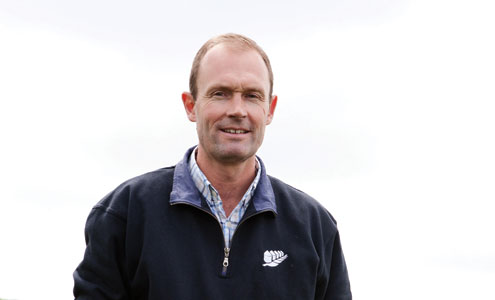FARMER FOCUS: keeping up with the bee and pesticides debate

I’m pleased to say I’ve taken some definite plusses out of the latest weather: my recently drilled spring cereals only had 40mm of rain on them the weekend after drilling while a colleague’s further west had 85mm and were briefly submerged. Another experienced the heaviest rain he’d ever seen yesterday, while I only got some moderate sleet, so things are certainly looking up.
Spraying recommendations for herbicides requiring soil temperatures of 8C remain outstanding as we were drilling the one day it got there. Still, that’s a good summer for Wales.
I have just followed the Sense About Science website’s live Q&A session on insecticides and bees. I find this a fascinating site and it does tackle the hot and spicy issues. I asked whether there was definitive proof that these seed treatments caused the decline in bee numbers and the answer was no. I acknowledge that more work needs to be done and if such proof is found, I will accept it and not use them again. But I believe the basis of science is that you question and find evidence, rather than acting on belief. The government is saying a similar thing; let’s hope they do as they say.
One scientist suggested we overused insecticides, so with an open mind I will try some oilseed rape without this year to see what I can manage, although this last autumn my attempts at growing companion crops and pollen and nectar mixes, which might all help, were dealt a severe blow by the weather.
Politicians, please think through any unintended consequences of a well-meaning ban, just as you should when considering proposed biofuel reductions. We may actually end up needing more imported animal protein (a bi-product of biofuels), causing more deforestation around the world in order to grow it. The NFU is doing an awful lot of work on our behalf on both these issues and more.
Andy Barr farms 630ha on a mixed family farm in mid-Kent, including 430ha mainly of winter wheat, oilseed rape and spring barley. The rest is taken up by an OELS scheme and grazing for 500 Romney ewes and 40 Sussex cattle

